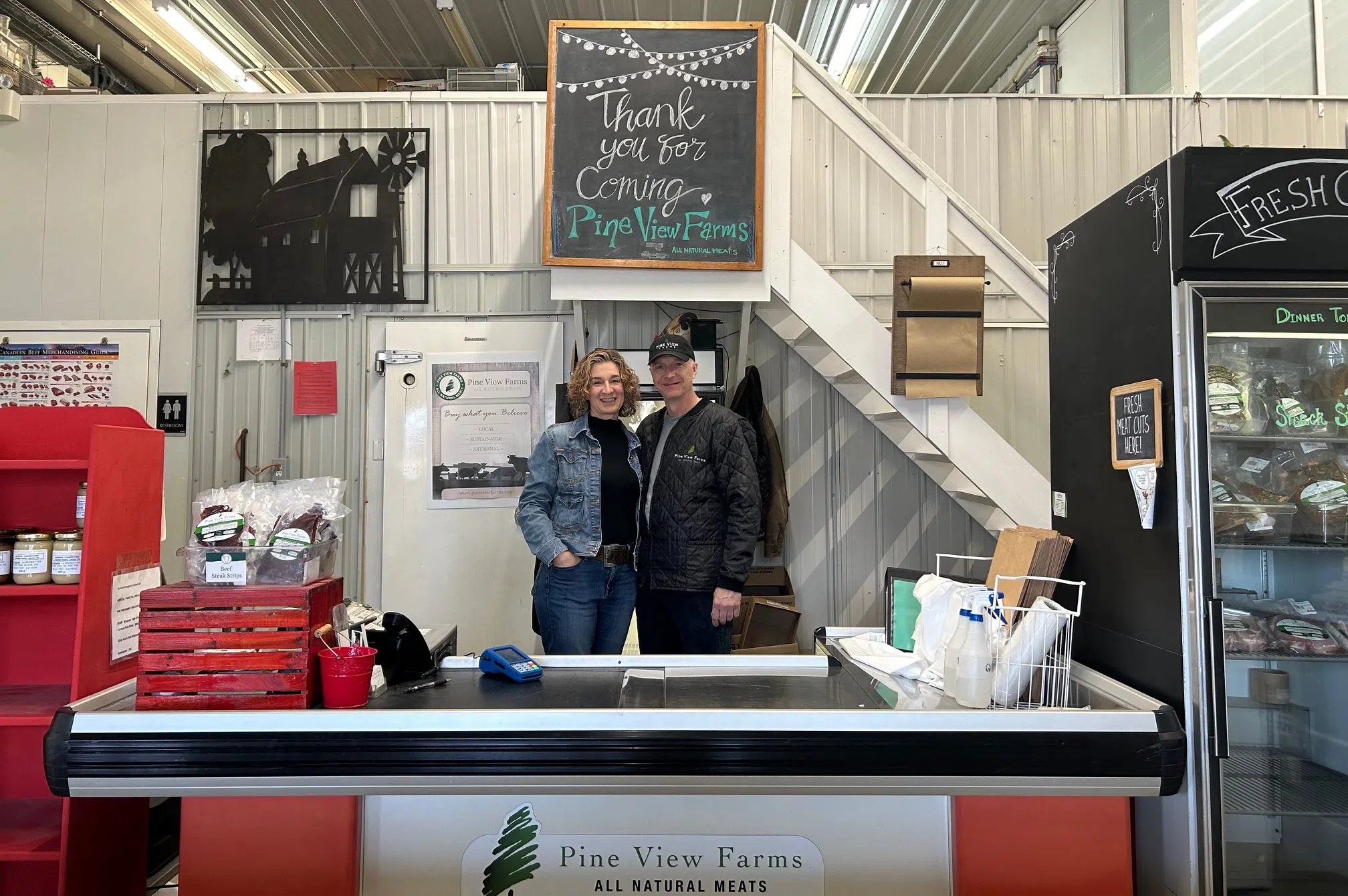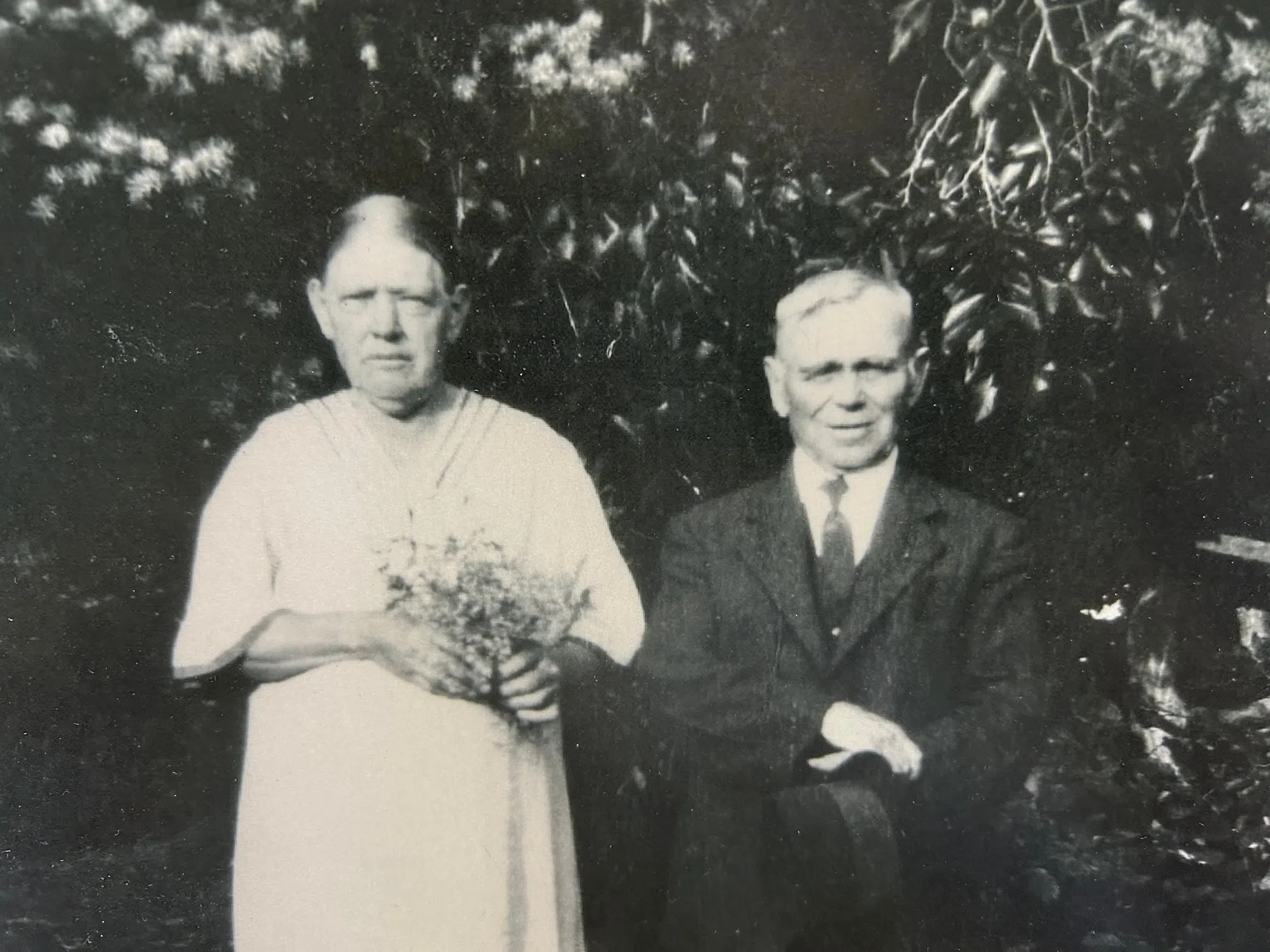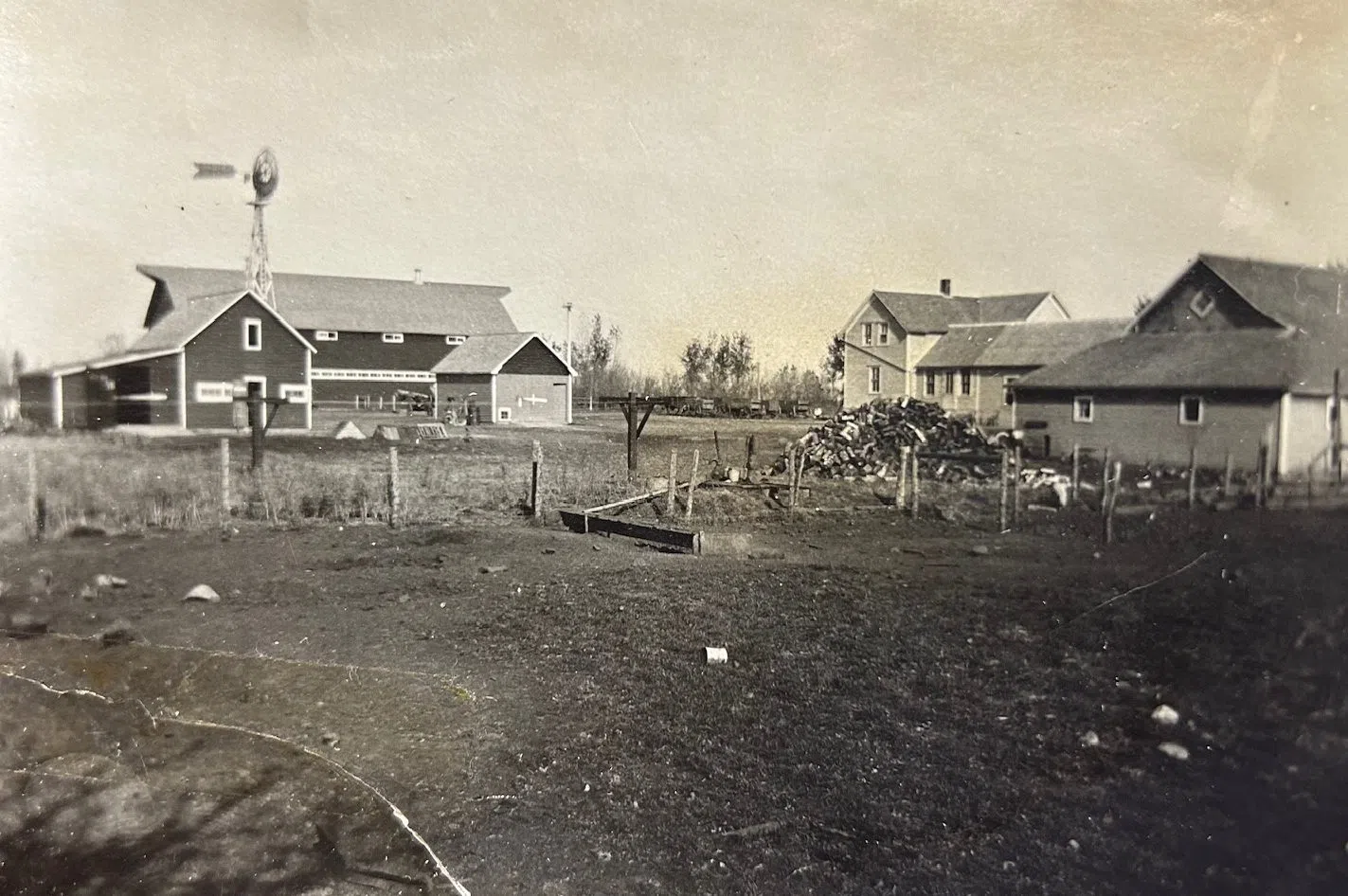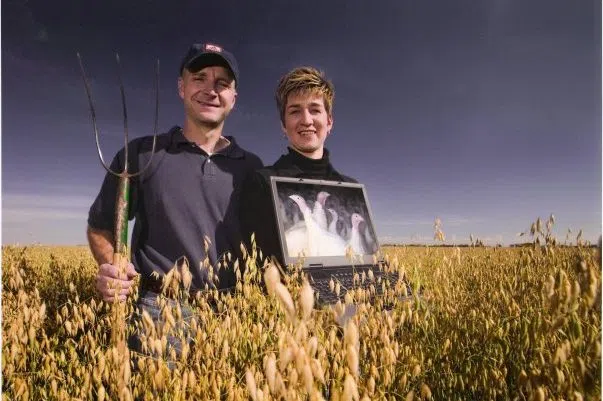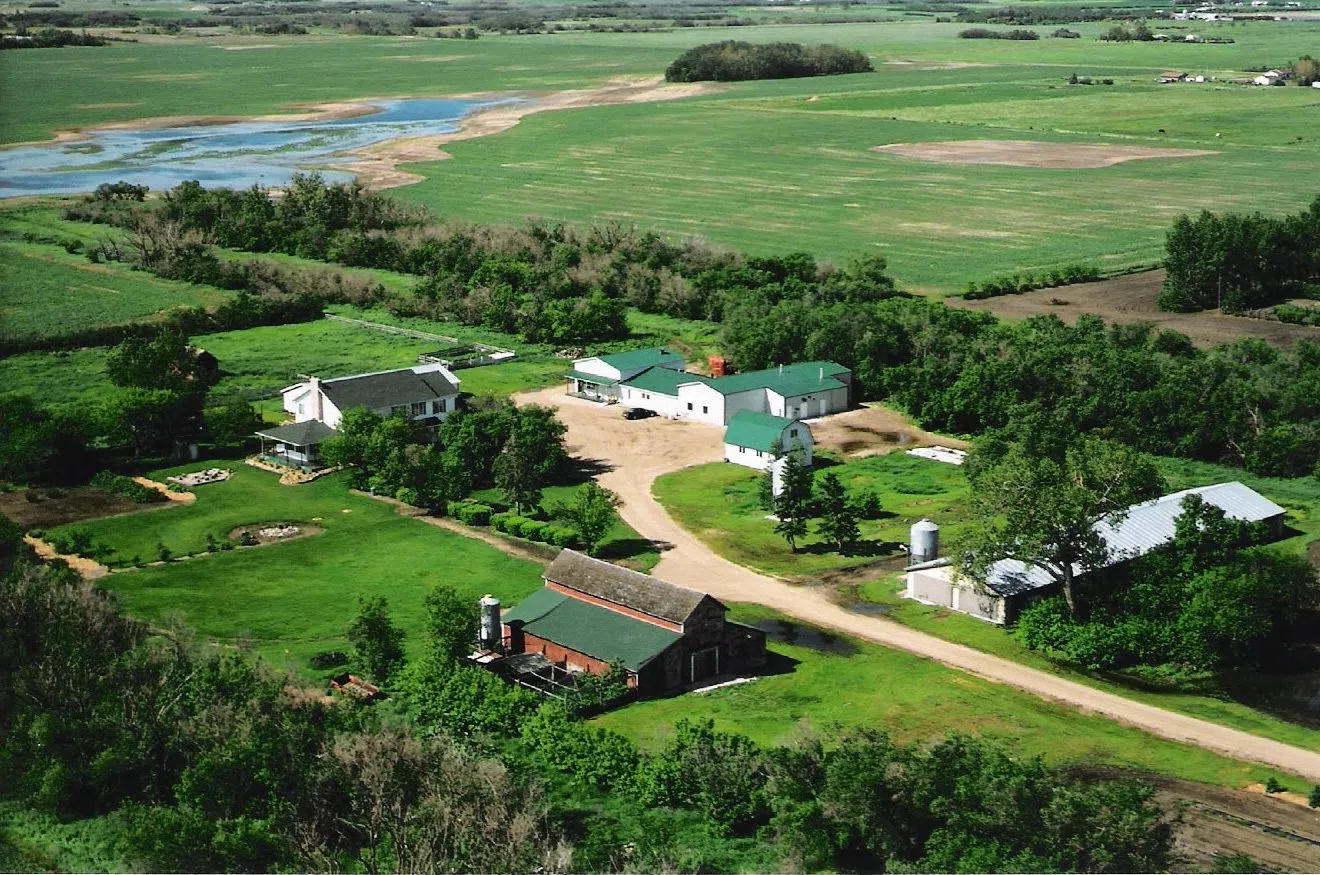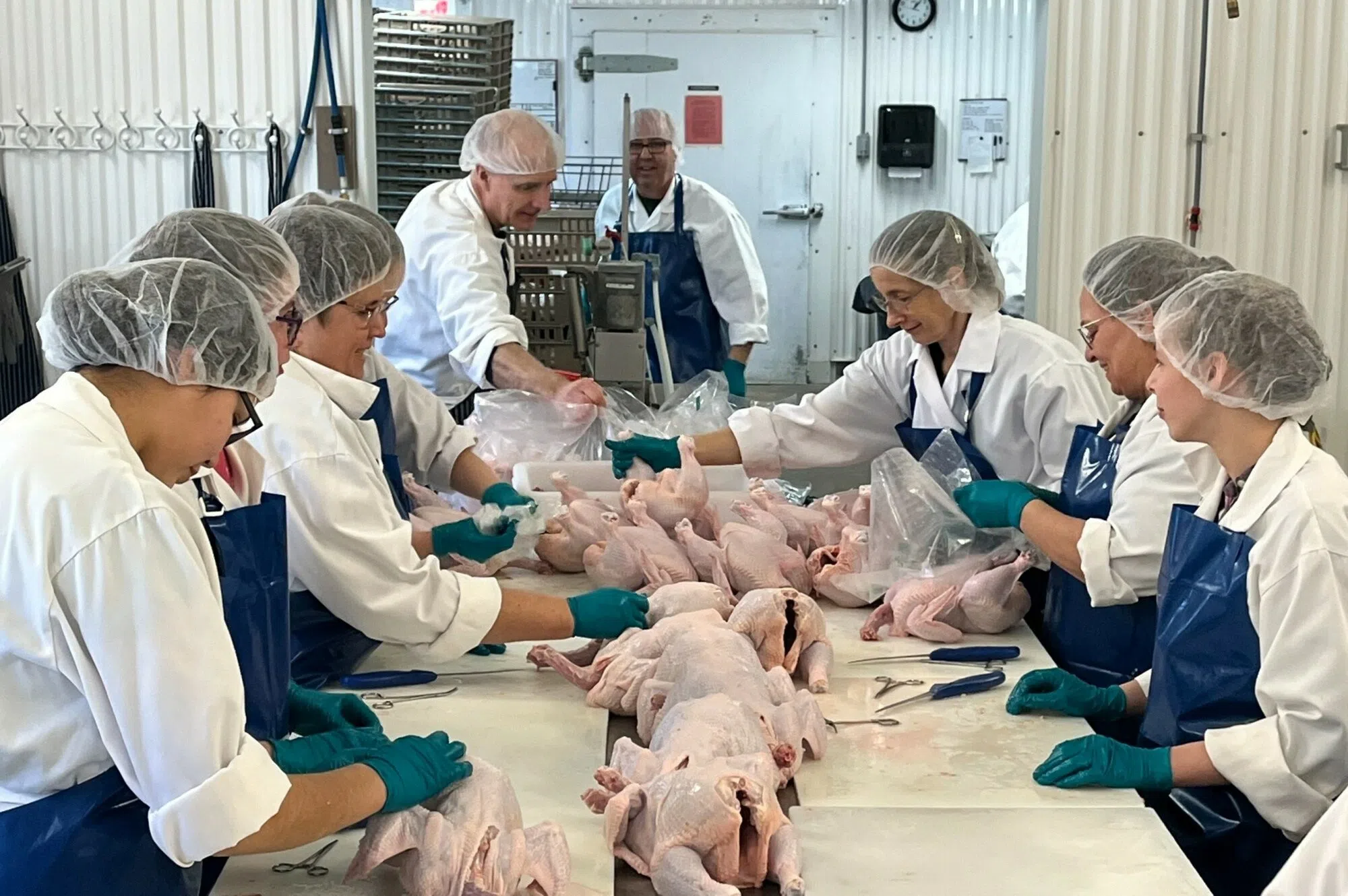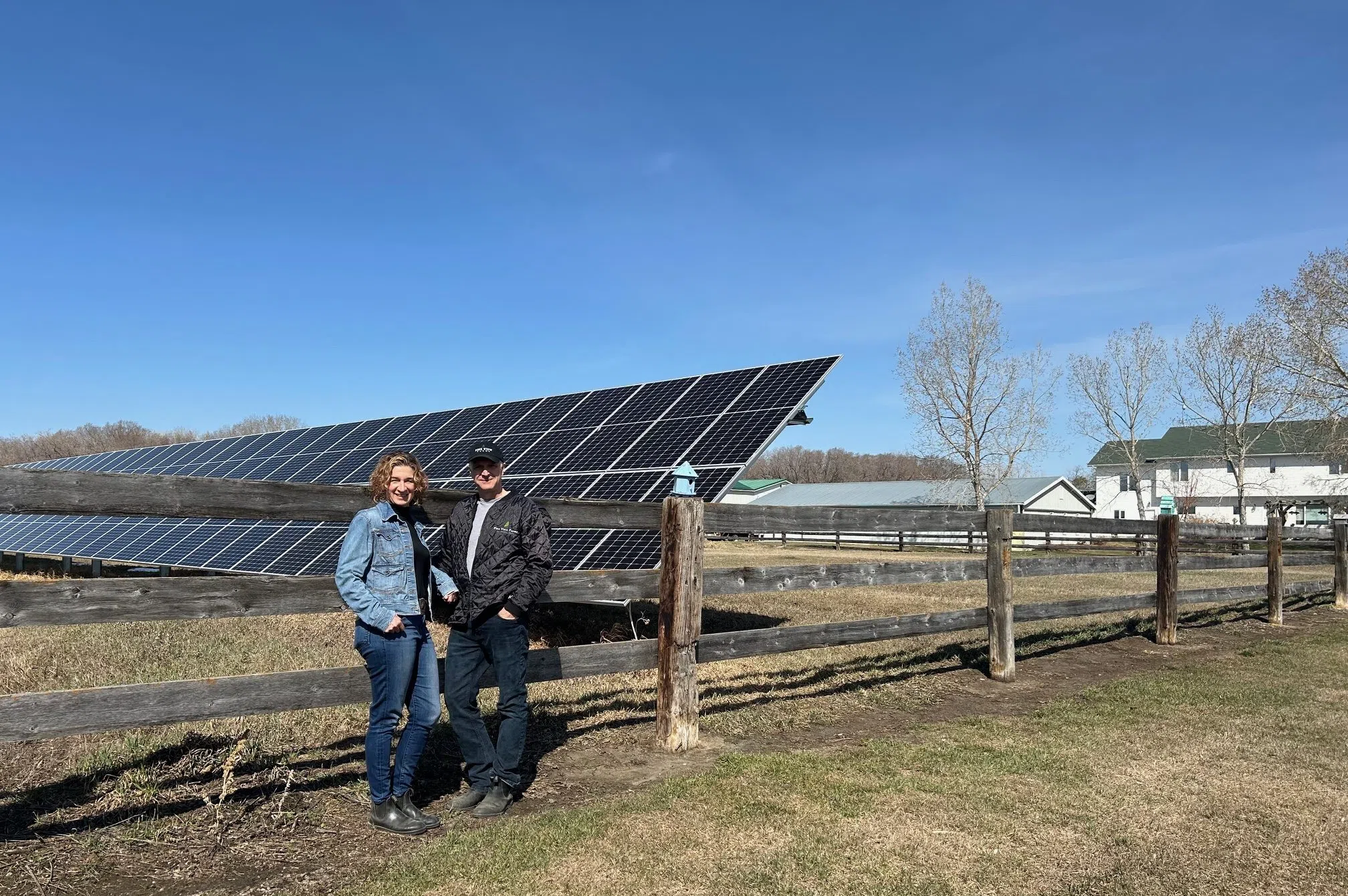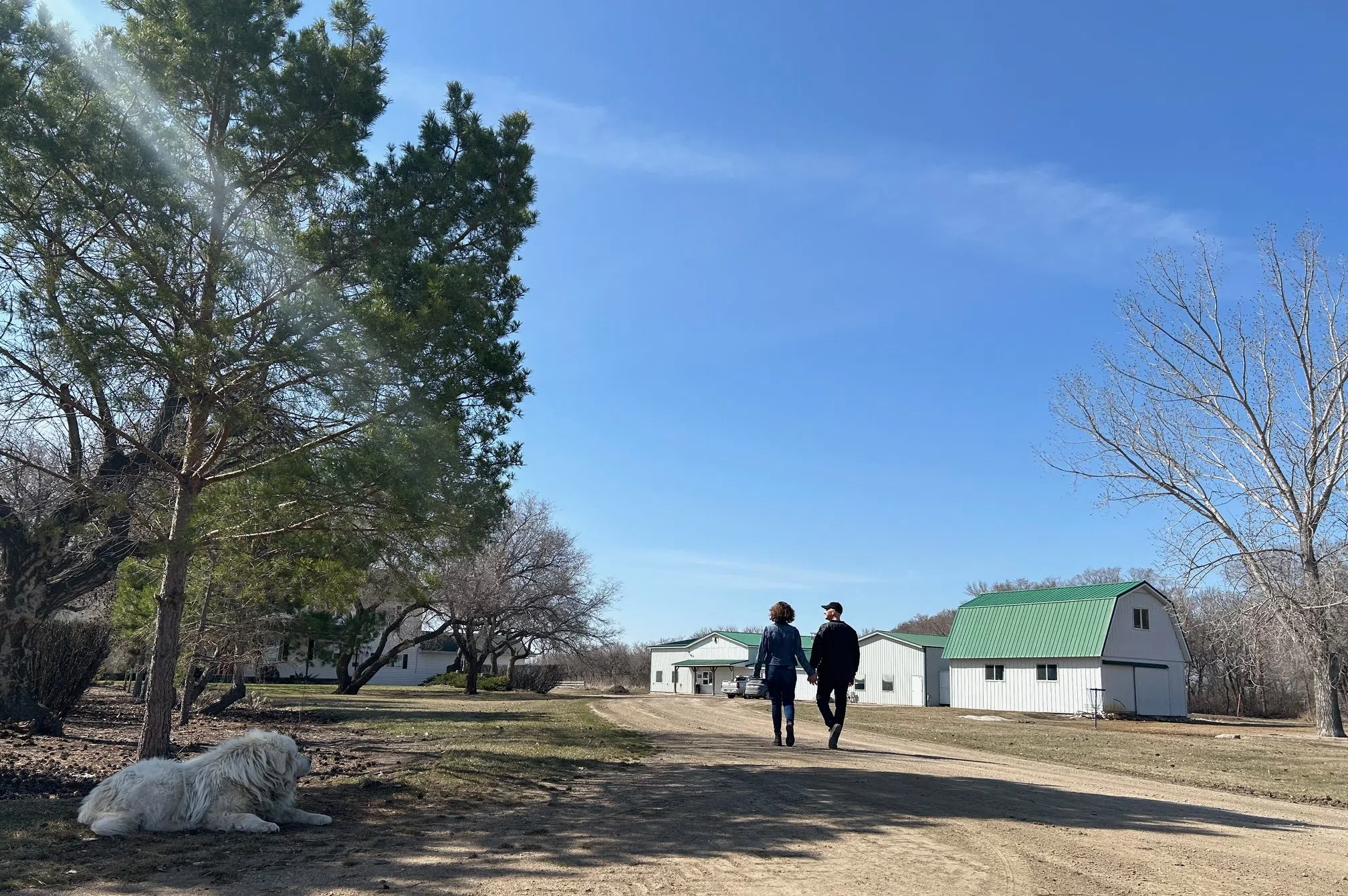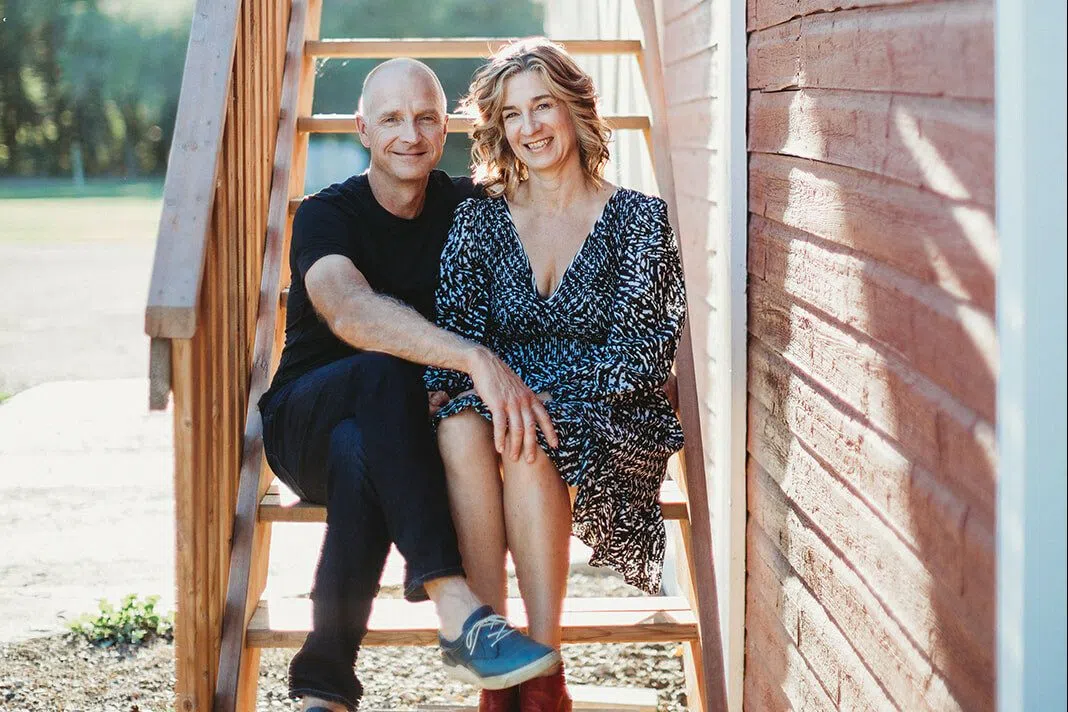Melanie Boldt always said she would never marry a farmer.
At 19, she attended the University of Saskatchewan’s College of Commerce working toward a marketing degree. She had grand ambitions of moving to a large city and pursuing a corporate career.
“I thought, ‘Oh, I’m going to go to Toronto, Vancouver or Montreal.’ That’s what you did. You left. There were no jobs in Saskatchewan. And so I thought I was headed to the bright lights in the big city,” she said during an interview with 650 CKOM on a sunny April morning.
When she met Kevin, a dairy farmer from Osler, Melanie’s plans for her life took a hard left turn — and she never looked back.
Together the pair built Pine View Farms, a farm-to-fork all-natural meat business that has flourished in Saskatchewan for over a quarter century.
The business will officially close its doors Tuesday.
The origin of Pine View Farms
In 1901, Kevin Boldt’s great-grandparents Jacob and Susanna Boldt settled the land near Osler that would eventually become Pine View Farms. (Submitted)
The land that would eventually become Pine View Farms was settled by Kevin’s great-grandparents, Jacob and Susanna Boldt. The couple moved from Minnesota to Saskatchewan in 1901.
“They loaded up their family and the cattle they had and the equipment they had onto the train, and they came up here and landed in Osler,” Kevin said.
The family intended to settle near Langham, but when Jacob realized the nearest mailbox was in Osler, they chose to find a homestead near the town.
“Just a grain bin and a shed is basically what they started with,” Kevin said. “They quickly built something and moved in for winter.”
As the years went on, Jacob and Susanna’s farm continued to grow.
The Boldts survived the winter of 1901 on the homestead with very few structures in place. By the 1920s the farm was full of buildings as well as a variety of animals. (Submitted)
“They took on more land, more livestock, and they took on more children,” said Kevin. “(They) ended up having 23 pregnancies, and 18 children survived.”
Jacob’s youngest son, Isaac, took over the homestead in the 1940s and operated the farm for a decade.
In the 1950s the Boldt farm was sold to someone outside of the family.
More than 40 years later, Kevin Boldt bought it back.
A new take on an old farm
In 2003, Kevin and Melanie Boldt exited grain farming, selling all of the equipment to invest in expanding the Pine View Farms butcher shop. (Pine View Farms All Natural Meats Facebook)
In 1998, Kevin and Melanie were searching for a piece of land to call their own.
They were working with Kevin’s father on a farm across the road from the original homestead, and learned that the farmer who owned it had a different quarter section of land for sale.
When they went to speak with him, the conversation took an unexpected turn.
“For some reason, out of Kevin’s mouth came ‘Is your yard for sale too?’” laughed Melanie. “So we ended up buying this farmyard, and it was equipped with a poultry barn, an abattoir, small butcher shop… So we thought ‘Oh well, that’ll make a nice diversification to our farm.’”
Pine View Farms has been owned and operated by Kevin and Melanie Boldt since 1998. The all-natural meat business closes its doors this week. (Pine View Farms All Natural Meats Facebook)
The first few years on the farm were challenging for the young couple.
“Kevin and I had terrible timing,” Melanie said. “The first six years of farming, we had four droughts, one bumper crop, one average crop. Throw in plagues of grasshoppers and low commodity prices… we were in debt up to our eyeballs.”
“It got tough, and we had to really ask ourselves ‘So if we want to stay in farming, how is this going to work?’ We started looking at everything we were doing, and we had this fledgling little meat business that was growing at double-digit rates every year,” she said.
Kevin and Melanie saw the demand for locally grown and butchered meat, and rose to the challenge.
“We started with chicken. And we were raising cattle so we thought ‘Well, beef makes sense,’” said Melanie. “Then people started asking for bacon so pork came into the mix. Then lamb. We were doing nose-to-tail butchery, so then sausage, burgers, souvlaki, skewers, whatever, all came into the mix. We just kind of grew organically that way.”
In 2003, the Boldts embraced a new vision for their farm. They completely exited grain farming, selling all of the equipment to invest in expanding the butcher shop.
Pine View Farms employed 30 part-time and 7 full-time staff, all of whom have found new employment in the lead up to the farm’s closure. (Pine View Farms All Natural Meats Facebook)
“When we started this farm people said ‘You’re crazy.’ They also said it to us when we sold the machinery and got out of traditional grain farming and into the meat business,” Melanie said.
“Maybe they think we’re still crazy, but we’re OK with that,” she laughed.
Throughout their decades in business, the couple has put an emphasis on sustainability.
“Economically sustainable for us means the primary producer earns a fair return from what he or she grows on the farm,” Melanie said. “We’re also strong believers that creating local employment creates spin-offs in your communities. Our staff take their pay check and spend it at the Osler General, or the Warman Home Centre, or wherever. You start to get that economic flywheel turning and all of a sudden money is staying in your local economy.”
The Boldts firmly believe that better policies are needed in the meat industry, and they aimed to lead by example over the decades.
In 2019 the couple commissioned solar panels for the farm. The panels generate enough power for about seven average homes, and cover about 25 per cent of the electrical needs of the farm. (Brittany Caffet/650 CKOM)
Pine View Farms was the first domestically inspected poultry plant in Saskatchewan, and continues to be the only plant in the province that undergoes product inspection. It was also the first carbon neutral chicken farm in Canada.
“We feel strongly that we need to leave our little piece of the planet better than when we got it. And raising animals right, how we deal with manure and byproduct, how we do things on this place matters,” she said. “We want to do better. We’re not perfect, but we want to do better.”
The end of an era
The Boldts say they aren’t retiring, but transitioning. As operations wrap up at Pine View Farms, they will be taking a few months off as they decide what their next venture will be. (Brittany Caffet/650 CKOM)
In March, Kevin and Melanie announced that after 26 years in business, Pine View Farms will close.
“As business owners you always evaluate your business, see where it’s going, see what the future looks like,” Kevin said. “This was a decision that came over several years, and it just happened to be the right time now.”
The couple is touched by the outpouring of support from the community following the announcement.
“So many people emailed or phoned us, or showed up or sent cards and told us how our meat became part of their family ritual. Or how many times our meat was at the centre of a holiday celebration or family gathering,” Melanie said, tears welling in her eyes.
“When you hear those stories you go ‘Yes, that is why we did this.’ And that means something. I’ve kept all of those cards and emails. When I’m feeling low I’ll go read them.”
Pine View Farms employed 30 part-time and 7 full-time staff, all of whom have found new employment in the lead up to the farm’s closure.
Kevin said a career highlight has been getting to know so many people — from staff to customers, suppliers and chefs.
The pair feels immense pride when looking back on the business they created from the ground up.
“Certainly when you’re in the middle of it, you don’t really pay attention. You just do what you have to do to keep going. It’s a sense of accomplishment for sure,” Kevin said. “We built a business where there was none.”
The next chapter for Kevin and Melanie Boldt
The Boldts plan to remain on their homestead once Pine View Farms has officially closed. (Pine View Farms All Natural Meats Facebook)
The final day of regular store hours at Pine View Farms is Tuesday.
With the barns, butcher shop and freezers empty, the Boldts plan to take some time before deciding what path they will venture down next.
“We’ll do something. We’re not sure what it is. We’re transitioning — we’re not retiring,” said Melanie.
While the business will no longer be operating on the farm, Kevin and Melanie will remain on the homestead.
“Our plan is to stay on this yard, because we love it here. It’s home. We look forward to enjoying just being on our yard without livestock and a business all the time. That’s going to be fun.”
The pair is eager to experience a level of spontaneity that they haven’t had in decades.
“We will actually be able to go away on a weekend. Who even knows what that is like?” laughed Melanie. “That is going to be a novel concept that I am looking forward to.”
The closure of Pine View Farms is bitter sweet for the couple as they prepare to navigate a completely different lifestyle.
“I’ve never lived without livestock,” said Kevin. “I don’t know what that’s like. So will I miss the livestock over time, or will I be relieved? I don’t know.”
As they enter a new chapter of their life, one thing is certain:
Melanie Boldt is glad she changed her mind all those years ago and agreed to marry a farmer.
